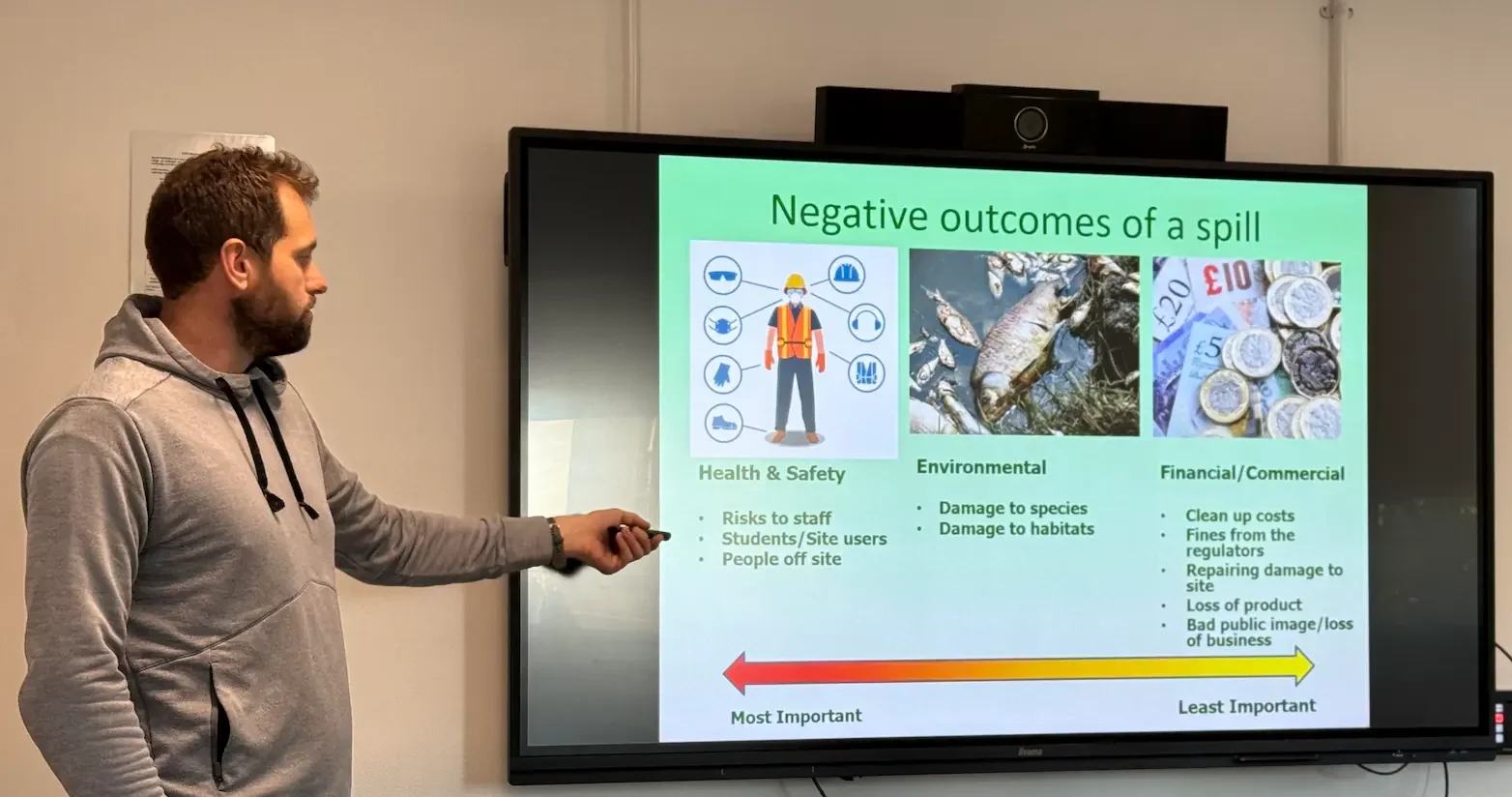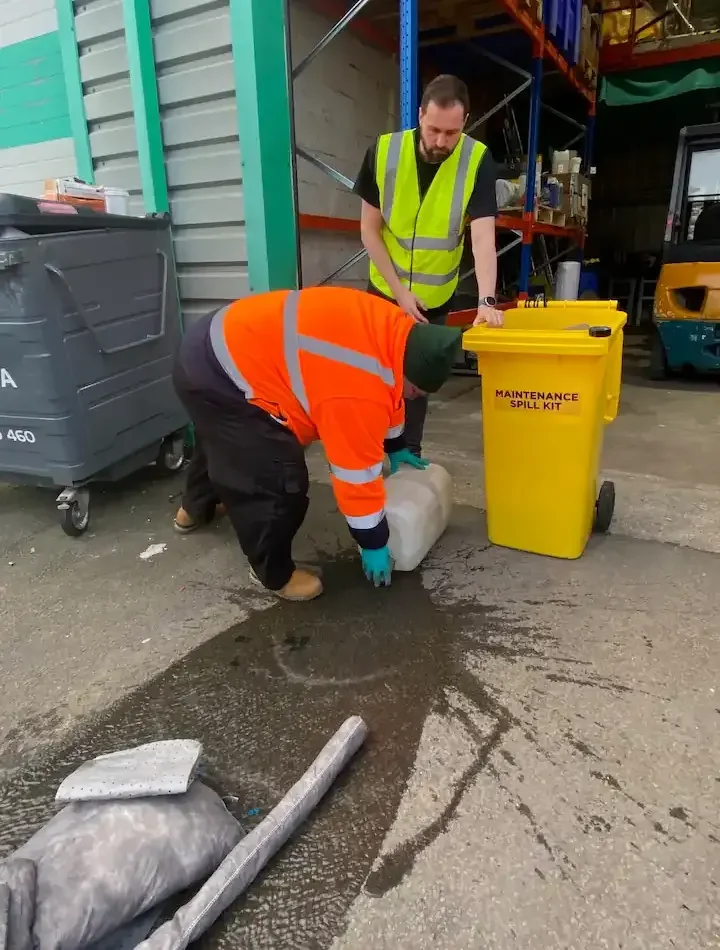
Spill Response Training
Spill Training Overview:
Up to 10 delegates per session
Sessions last approximately 3 hours
2 sessions can be conducted on the same day
Conducted on your site
Mixture of classroom and practical
Tailored to your site specific needs
Discounts available for running multiple sessions
International Spill Accreditation Scheme (ISAS) Accredited training course
We can run unsociable hours sessions to cover weekends/night shift.
It is essential that your spill team members are trained in the use of spill kits and any other spill containment facilities on site to ensure they are prepared to respond competently in the event of a spill. Your spill containment measures need to be proportionate to the level of risk on site, but they will only be effective if they are used quickly and effectively, well trained first responders can ensure if a spill does occur it’s effects will be minimised and the incident will be dealt with safely. Often the environmental managers or health and safety managers are aware of what the spill procedures are and how to use spill kits but they are rarely the first responders to a spill. By the time the alarm has been raised and they have arrived at the spill its severity has drastically increased and health and safety or environmental harm has already been caused.
Our spill training aims to empower your staff to have the confidence and competence to use your spill containment facilities quickly, safely and effectively to protect health and safety and the environment. We can train up to 10 staff on each session, and can run 2 sessions on the same day, allowing you to get bulk numbers of spill responders trained in a short space of time. We offer discounts for multiple sessions and discounts for repeat business.
Our sessions are all tailored to your site specific risks but typically follow the same format, topics covered include:
Training delegates on the hierarchy for importance when dealing with a spill protect health and safety, the environment and property.
The effects different substances will have on the environment e.g oils, site specific chemicals, bodily fluids and foodstuffs e.g. milk and beer.
Demonstrate the environmental sensitivity around your site e.g. Sites of Special Scientific Interest (SSSI’s), Special Areas of Conservation and Special Protection areas. These will be reviewed in advance of the training using Defra data.
Understanding different types of drainage systems.
Explaining your site specific draining and highlighting key features associated with spills, e.g. interceptors and drain closure valves.
Risk assessing spills based on type, quantity and location and discussing the health and safety aspects these factors can pose.
Case studies demonstrating the health and safety, environmental and financial impacts spills can have.
Post spill responsibilities including decontamination, waste disposal, incident reporting and restocking spill kits.
Product training of the different components of your spill kits.
Training on additional infrastructure you may have on site e.g. penstocks or closure valves.
The delegates will clean up a spill of water, giving them the chance to use the products, including specialist products such as Dammit mats and Dammit paste. All materials will be provided by Spill Training UK
Talk through your spill procedure and relate it to the lessons learned in the training session.
10 question multiple choice test - this can be given orally for delegates who struggle with reading and writing.
Our Training is built to meet all of the requirements of best practice guidelines released by the Environmental Regulators in the UK, and as such it covers:
“• Awareness of the potential for harm to people and the environment from the materials held on-site
• Information on the sensitivity of the environment surrounding the site
• The environmental responsibilities of your business
• Use of the correct personal protective equipment and any appropriate and/or necessary health and safety training
• Reporting procedures if there’s a risk of surface water, groundwater or land contamination
• Reporting to the local water/sewerage undertaker if a discharge to the foul or combined sewer is involved
• Safe and correct use of all spill clean-up equipment or pollution prevention structures and/or devices on site
• Safe handling and legal disposal of contaminated materials and wastes resulting from an incident, including arrangements for using specialist contractors and services
• Appropriate and safe decontamination.”
Taken from Guidance for Pollution Prevention 21 - Incident Response Planning
We have experience of training on a wide variety of sites and have built up an understanding of the site specific challenges our customers can face. Industries we have worked with include:
COMAH sites
Manufacturing
Warehousing and distribution
Hospitals (NHS and private)
Universities and schools
Care homes
Wind farms
Food manufacturing and abattoirs
Data centers
Council depots
If you have any questions of would like to discuss your requirements please get in touch.

